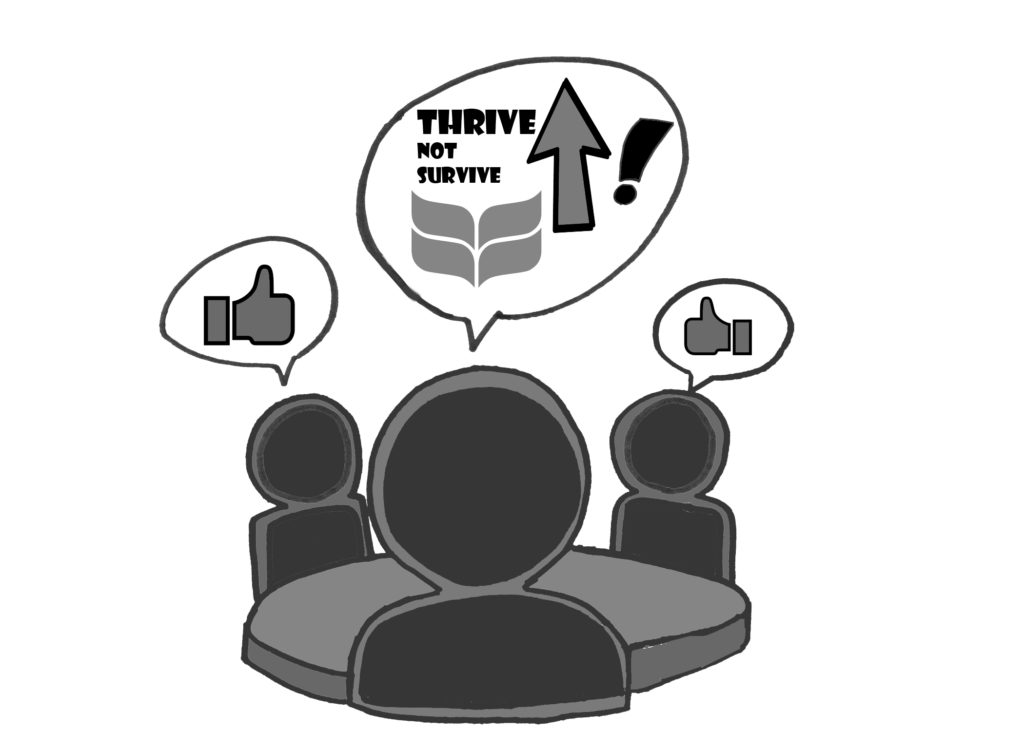By Charun Upara
uparacha@grinnell.edu
Last week, President Raynard Kington announced in a special campus memo that the Task Force on Residential Learning had released its final report, which covers two years of investigations and actions to improve the integration of residential living and the student experience.
According to the campus memo, Kington asked the Task Force in 2015 to “define the goals of self-governance in order to serve the mission of the College; suggest avenues to infuse the College mission into the residential experience; help students thrive, not just survive; and provide leadership development for students.”
With these goals in mind, the Task Force was divided into four sub-committees, collaborating with Student Affairs, the administration, facilities management and various student organizations and groups. Through multiple meetings with the President, the sub-committees collectively generated a list of recommendations to the President on how to improve students’ residential experiences.
“A lot of what drove this was an interest in understanding students’ residential experience and what learning looks like in the context of residential experience, and sort of learning broadly — not just learning in the classroom,” said Professor Paul Hutchison, education, and co-chair of the Task Force. “The president felt that a series of those were important to implement immediately and were largely changes to the alcohol policy.”
The investigations were carried out during the first year of the Task Force, and in the second year, priorities were established. One action prioritized by President Kington was the re-articulation of self-governance in the Grinnell College community.
The re-articulation stemmed from the need to “create a definitive text on this topic that will guide new generations of Grinnelllians.” The report restates the notion of responsibility and accountability that has been Grinnell’s guiding principle for a long time and reminds members of the community that self-governance ultimately co-exists with a larger body of laws, policies and regulations.
According to Sarah Moschenross, associate vice president of the College, the articulation was drafted by students, faculty and staff, and was informed to the public through town halls, open forum and focus groups. Then, the draft was sent out to the community for feedback, edited again and, as the final step, approved by the President.
Along with the re-articulation of self-governance, a new first-year learning experience was developed. Responding to suggestions of student groups to improve the first-year experience and requests for required training for all students, a new curriculum was developed by the First-Year Experience Curriculum Oversight Committee and was first tested in 2017-2018, where students received trainings in residential living as a supplement to their tutorial.
“The curriculum covers some of the things that you would have talked about in NSO, for example, active bystanderism, sexual respect, wellness issues,” Hutchinson said. “There’s also some focus on student identities and how student identities impact experiences at the college.”
Currently, the curriculum is in its second pilot year. Scaling up from last year, it is being taught as an extension to 11 tutorials. The First-Year Experience Curriculum Oversight Committee hopes to officially launch the program in 2019-2020, where instead of being an extension to tutorial, the curriculum will be a one-credit required course for all first-year students.
Even though the Task Force has completed its work, numerous changes to the community are still happening as a result of their recommendations, such as the renovations of residence halls and the creation of new positions in Student Affairs. Many of the initial recommendations are still awaiting action and the report serves to determine which organization or subcommittee is responsible for the continuation of implementing changes.
Overall, Moschenross thought that the Task Force was a great opportunity for members of the College community to collaborate and address broad issues on campus.
“I think that it [the Task Force] helped raise the profile of the work of Student Affairs on campus and brought to light a lot of the lived experiences of students on campus and where we needed to focus our attention. I do think that it was a successful experience and a good use of our time as an institution, and I think that a lot will come from it,” Mochenross said. “Hopefully, we’ll impact the lives of students positively.”






























































